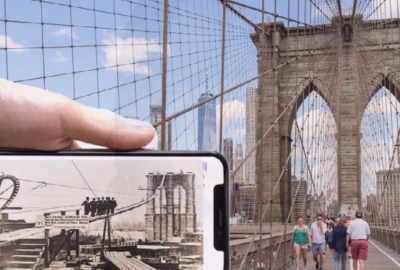
Still Accepting Applications
Your capstone thesis, developed over a two-semester period, is where you put your creativity, skills, and knowledge toward a project of personal and professional interest. Graduating students present their thesis projects to the ECT community, industry partners, family and friends, at a celebratory end-of-semester event.
More about the Thesis Capstone
The capstone thesis enables you to integrate and apply what you've learned in your coursework, internships, and prior experiences, with faculty guidance and support.
In the capstone thesis course, you will meet regularly as a group, reporting on progress, discussing your research and prototypes, and critiquing each other's work through collaborative peer and faculty feedback.
Examples of recent thesis projects:
- Science in Serious Play, Aybuke Gul Turker: This project reveals the imaginative side of science learning through a serious action physics game that teaches geometrical optics to middle and high school students.
- LanguageBug, Guilherme Bueno: Learn as you speak – a novel approach to language learning.
- Skyward, Wayland Guo: Skyward provides a better ornithology learning experience through a combination of bird identification and game-based learning.
- Know Your Globe, Emily Nevitt: This project is a best practices website designed to help study abroad educators construct meaningful and transformative learning experiences.
- Monkey-Mind, Heena Gulati: Monkey-Mind is a creative, action-oriented, web and mobile-based platform designed to educate children about mental health using interactive multimedia technology and digital games.
- Eat Well Squad, Sang Nong: Eat Well Squad motivates preteens to enhance their literacy of nutrition fact labels using both printed comics and augmented reality.
- VR Magic Bongos, Aniol Maso: This virtual reality game aims to help adolescents improve their inhibitory skills.
- Distant Faces, Shared Spaces: Trent Hoy. This project investigates the impact of immersive mobile technologies on language and intercultural learning in classroom telecollaboration partnerships.
- Three Worlds, Alison Bosworth: An application that pays attention to bigger frameworks around early childhood education for children to learn about art, draw and interact.
- MindMint, Sarah Azhar: A mobile app that helps users strengthen their cognitive function, working memory and prevent Alzheimer’s.
